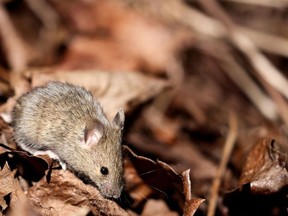Health
COVID-19 Alters Mouse Sperm, Potentially Raising Anxiety in Offspring

Research from the Florey Institute of Neuroscience and Mental Health in Melbourne, Australia, has revealed that COVID-19 infection causes significant changes to sperm in male mice, potentially leading to increased anxiety in their offspring. The study, published on March 16, 2024, in the peer-reviewed journal Nature Communications, highlights the pandemic’s possible long-term effects on future generations.
In the study, male mice were infected with the virus responsible for COVID-19 and subsequently mated with uninfected females. The researchers assessed the health and behavior of the resulting offspring. According to the study’s first author, Elizabeth Kleeman, “We found that the resulting offspring showed more anxious behaviours compared to offspring from uninfected fathers.”
The findings indicate that all offspring from COVID-infected fathers exhibited increased anxiety traits. Notably, female offspring demonstrated “significant changes” in gene activity within the hippocampus, a brain region critical for emotional regulation. Co-senior author Carolina Gubert explained that these changes may stem from “epigenetic inheritance and altered brain development,” contributing to the heightened anxiety levels observed.
Groundbreaking Research Insights
This research marks a pioneering effort to illustrate the long-term behavioral and developmental impacts of COVID-19 on future generations. The study found that the virus altered specific RNA molecules in the sperm of infected males, affecting genes vital for brain development. Lead researcher Anthony Hannan emphasized the importance of these findings, stating, “These findings suggest that the COVID-19 pandemic could have long-lasting effects on future generations.”
While the implications of this research are significant, Hannan noted the necessity for further studies to determine whether similar changes occur in humans. “If our findings translate to humans, this could impact millions of children worldwide, and their families, with major implications for public health,” he added.
The COVID-19 pandemic, which began in early 2020, has led to over seven million deaths globally, according to the World Health Organization. The actual toll is likely much higher. The pandemic has profoundly influenced mental health, particularly among younger individuals, who experienced isolation during critical social developmental periods.
Ongoing Mental Health Challenges
Research indicates that children have faced significant learning disruptions due to pandemic-related educational interruptions. A review of approximately 40 studies across 15 countries, published in the journal Nature Human Behaviour in 2023, found that children had not fully recovered from the educational gaps caused by the pandemic.
As the world continues to navigate the aftermath of COVID-19, understanding the potential long-term biological and psychological effects remains crucial. Ongoing research will be vital in addressing these issues and formulating strategies to support future generations.
-

 Science3 months ago
Science3 months agoToyoake City Proposes Daily Two-Hour Smartphone Use Limit
-

 Health4 months ago
Health4 months agoB.C. Review Reveals Urgent Need for Rare-Disease Drug Reforms
-

 Top Stories4 months ago
Top Stories4 months agoPedestrian Fatally Injured in Esquimalt Collision on August 14
-

 Technology3 months ago
Technology3 months agoDark Adventure Game “Bye Sweet Carole” Set for October Release
-

 World3 months ago
World3 months agoJimmy Lai’s Defense Challenges Charges Under National Security Law
-

 Lifestyle4 months ago
Lifestyle4 months agoVictoria’s Pop-Up Shop Shines Light on B.C.’s Wolf Cull
-

 Technology3 months ago
Technology3 months agoKonami Revives Iconic Metal Gear Solid Delta Ahead of Release
-

 Technology3 months ago
Technology3 months agoApple Expands Self-Service Repair Program to Canada
-

 Technology3 months ago
Technology3 months agoSnapmaker U1 Color 3D Printer Redefines Speed and Sustainability
-

 Technology3 months ago
Technology3 months agoAION Folding Knife: Redefining EDC Design with Premium Materials
-

 Technology4 months ago
Technology4 months agoSolve Today’s Wordle Challenge: Hints and Answer for August 19
-

 Business4 months ago
Business4 months agoGordon Murray Automotive Unveils S1 LM and Le Mans GTR at Monterey









